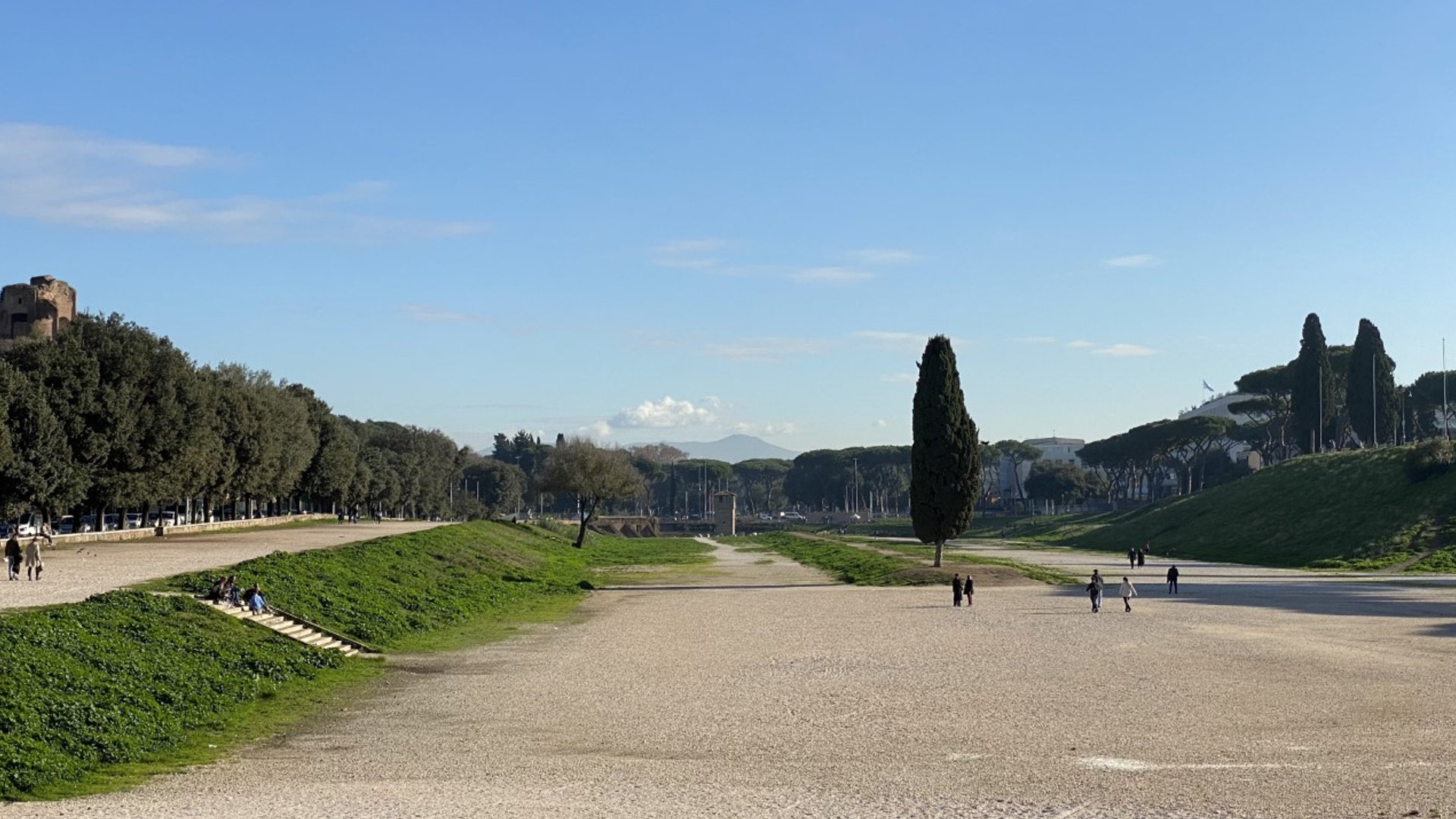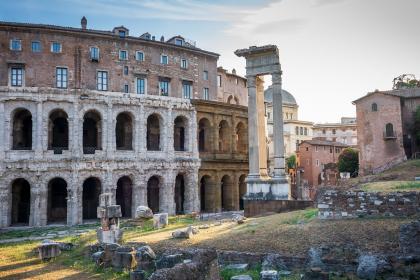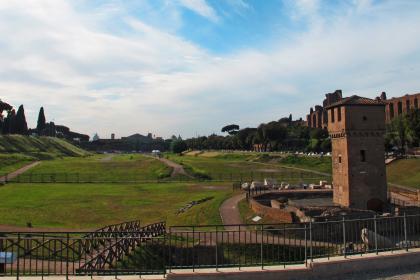
The Circus Maximus is the largest building for public entertainment in antiquity and one of the largest of all time (600 metres long by 140 metres wide) and is related by a legend to the very origins of the city: the Rape of the Sabine Women took place here.
At the time of the Tarquini kings, the Valle Murcia, the wide valley between the Palatine and Aventine hills, was used as a place for chariot races, but only under Julius Caesar a real walled circus was built.
The races held in the Circus were the most popular competitive activities for the Roman people, as well as the gladiatorial games. The chariot drivers soon became idolized by the Roman people, and since the chariots belonged to different racing teams distinguished by different colours (green, blue, red, white), the spectators too were divided up on the circus steps according to the colour of their beloved riders. The large area of the bottom of the valley also served as a stage for events related to the political, social and religious life of the city, such as triumphal celebrations, procession ceremonies and public executions.
Damaged several times by fire, the Circus Maximus was almost completely rebuilt under the Principate of Trajan, and most of the structures visible today were built during its reign. Numerous works were carried out by later emperors, including the spectacular erection of the gigantic obelisk, now in the Lateran Hill, brought to Rome by Constant II in 357 AD.
The Circus was exploited until the first decades of the 6th century. Later it was used as an agricultural area, and then, from the 19th century onwards, it became the site of the gasometer plants, warehouses, manufactures, craft businesses and dwellings, until the beginning of the 20th century, when works began to create the archaeological park. The archaeological surveys, completed in 2016, have enriched the framework of knowledge about the monument, and the works of renovation of the area now ensures a complete understanding of it.
Entering the archaeological area, you can explore the galleries that led to the cavea and walk outside, following the ancient paving stones through different rooms that once served as shops, inns and small offices.
The redevelopment of the area also included the medieval Torre della Moletta (built in the 12th century), with the restoration of the ancient walls and a challenging consolidation project. An indoor staircase takes you up to the upper floor: a spectacular panoramic viewpoint over the archaeological area makes it possible to fully appreciate the dimensions of the Circus.
Today, thanks to Circo Maximo Experience, an innovative valorisation project using augmented reality (AR) and virtual reality (VR), you can visit the Circus through all its historical phases using interactive display technologies that have never before been used in such a large open-air area.
The Theatre of Marcellus

 Condividi
Condividi
Torre della Moletta and the archaeological area of the Circus Maximus

 Condividi
Condividi
Information
Always open
 Condividi
Condividi
Locations
To find out about all accessibility services, visit the Rome accessible section.











































